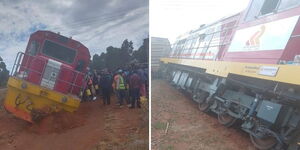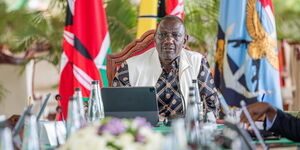Kenyans could soon stare at higher fuel prices after the Energy and Petroleum Regulatory Authority (EPRA) tripled the Petroleum Regulatory Levy charged per litre of fuel.
According to data provided by the regulatory authority, the government will now be collecting Ksh0.75 per litre of petrol as compared to the previous Ksh0.25 rate.
This major development was revealed during the recent EPRA fuel review which saw the price of fuel reduced by Ksh1. Super Petrol is currently retailing at Ksh206.36 per litre.
The Petroleum Regulatory Levy is among the major components that account for the Ksh78.76 taxes and levies the government collects for every litre of Super Petrol sold in Nairobi.
In the breakdown for the Ksh78.76 taxes collected, the vast majority goes towards the 16 per cent VAT (Ksh28.46) and Excise Duty (Ksh21.95).
On the other hand, Ksh18 goes towards the Road Maintainance Levy. Money collected towards this levy goes to various road agencies and is used for road maintenance projects across the country.
Other taxes contributing to the Ksh78.76 collection include the Petroleum Development Levy(Ksh 5.40), Import Declaration Fee(Ksh2.60), Petroleum Regulatory Levy (Ksh0.75) and the Merchant Shipping Levy at Ksh0.04.
Another important tax collected by the government is the Railway Development Levy which is set at Ksh1.56 per litre.
According to the Miscellaneous Fees and Levies Act (revised in 2020), the Railway Development Levy is imposed on all goods brought into the country and is meant to help the government implement projects in the rail industry.
"The levy shall be at the rate of two per cent of the customs value of the goods and shall be paid by the importer of such goods at the time of entering the goods into the country for home use.
"The purpose of the levy shall be to provide funds for the construction and operation of a Standard Gauge Railway (SGR) network to facilitate the transportation of goods," reads the Act in part.
Similarly, the government also levies taxes on a litre of Diesel and Kerosene bought by Nairobians.
The total tax on Diesel is Ksh67.06 while that on Kerosene is set at Ksh61.78.












